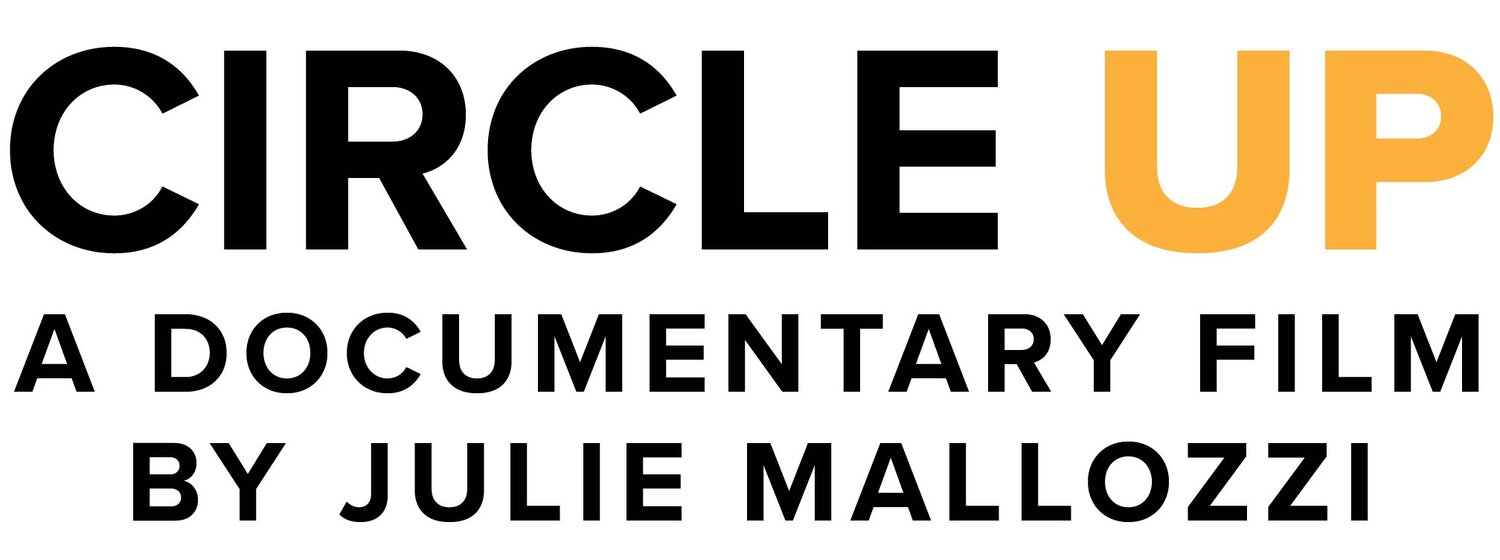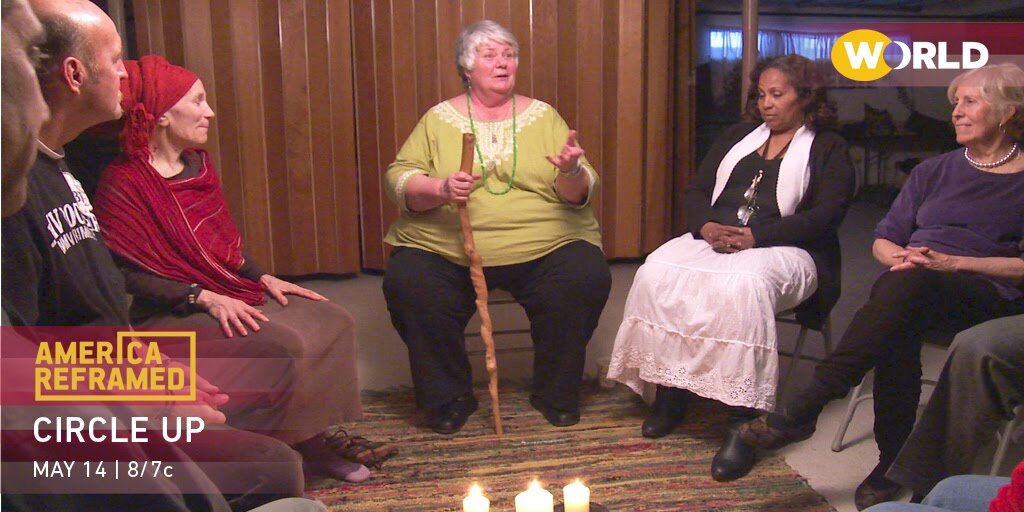CIRCLE UP will have its broadcast premiere on May 14 at 8pm (7pm CT / 9pm PT) on public television’s award-winning America ReFramed series. Check local listings for details.
Viewers can also stream the film for free here through June 28..
Here’s an interview filmmaker Julie Mallozzi completed for the broadcast:
Tell us a little bit about yourself and your film.
I’m an independent documentary filmmaker based in the Boston area where CIRCLE UP takes place. I’m of mixed heritage – Chinese and Italian-American and with influences from Native American, Hispanic, and Dutch cultures from various life experiences – and that has fueled my interest in the way different cultures mingle and intersect. And in how some traditions can be “repurposed” outside of their original context to address social issues.
How and why did you become interested in the topic of restorative justice?
I have long worked for social justice in my filmmaking, through both my documentaries and the 100+ short media pieces I have created for community organizations over the years. I learned about restorative justice about 12 years ago when I found out about peacemaking circles, an indigenous tradition that helps restore balance when harm has been done. I was intrigued that this Native American tradition was being used in multi-cultural settings to resolve conflict and build community. That launched my research for this film and my growing understanding of restorative justice more broadly. Now I’m a true convert!
You are a local, Boston-based filmmaker. How did your relationship with the community give you a unique insight into the story?
It made a big difference to live near my film subjects because it enabled me to spend a good deal of time with them before starting to film, to film over a long period, and to stay in close contact during the editing process. This was the first time I had made a film with survivors of trauma. I learned a lot about what it might mean to do “restorative filmmaking.” Janet, Clarissa, and the other people in the film watched many cuts and their feedback truly shaped the final film.
When did you develop a relationship with Janet?
I met Janet in 2012, after five years of (part-time) research into peacemaking circles. I had flown all over the country observing and filming restorative justice programs and then one of my advisors introduced me to Janet, who lives 10 minutes from my house. I was so struck by her personal story of healing and justice – and her impact on the wider community. I knew she would make a great subject for the film. And now she has become a good friend.
After enduring such a brutal tragedy, what gives Janet the strength to do the work she does?
Janet is one of the most amazing people I have met. She somehow had it in her to not only forgive the men responsible for her son’s murder, but to turn this tragedy around into healing for herself and her community. I'm not exactly sure where that strength comes from, but I know that when she sees positive change it helps her get through the tough times. She has told me some stories about things that happened to her as a child and how she tried to turn difficult things into something positive – so maybe it’s just part of her spirit. At the same time, Janet is always resisting being labeled as a hero or an angel. She thinks that anyone can do restorative justice work and live their life in a restorative way.
Are there any updates about Janet, Clarissa, or any of the other women in the film since you stopped filming?
Janet and Clarissa are both doing really well. In fact, they just returned from a second trip to New York City with CIRCLE UP. The first one, in February, was to present the film as part of a professional development event for a group of principals, social workers, and restorative justice coordinators from 20 different high schools. This week was to visit show the film and hold restorative circles for students and staff at schools in Brooklyn and the Bronx. I know that anniversaries, birthdays, and holidays are still hard for Janet and Clarissa - as it is for all survivors of homicide victims - but they tell me that when they do this work it feeds their souls! “We can’t bring our sons back, but we can bring them forward in everything we do."
How do you hope your film will help other survivors of homicide?
“Homicide doesn’t come with any directions or instruction manuals,” Clarissa often says. After her son was murdered, she felt so shaken and angry and alone that she reached out in the darkness for others who had experienced the same loss. This initial group of survivors of homicide victims became Legacy Lives On, which is featured in CIRCLE UP. I hope that the film helps her survivors find community so they can get through those very dark moments. I also hope it helps people find other paths to justice where the criminal justice system might fail. It’s not possible to bring back a stolen life. But there are ways that a person, a family, a community can be made whole again. If CIRCLE UP can help one person recover from trauma, or prevent one act of revenge violence, then all of my years of work will have been worth it

